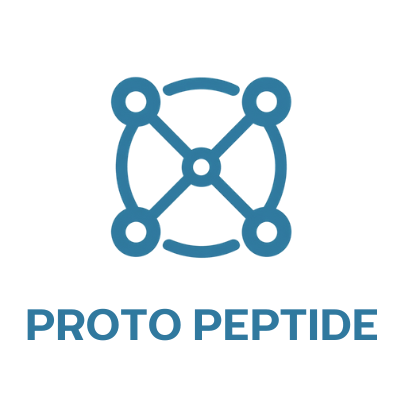What Are GLP-2s?
Peptides are powerful tools in research and therapeutic development, and among them, GLP-2 (glucagon-like peptide-2) has emerged as a key regulator of intestinal health. GLP-2 is naturally secreted by the gut in response to nutrient intake and plays a vital role in intestinal growth, nutrient absorption, and gut barrier integrity. Researchers are increasingly studying GLP-2 analogs to explore applications in gastrointestinal disorders, nutrient malabsorption, and metabolic optimization.
How GLP-2 Works
GLP-2 functions by binding to GLP-2 receptors in the intestinal lining, triggering a cascade of biological effects:
- Promotes intestinal growth: Stimulates epithelial cell proliferation, increasing surface area for nutrient absorption.
- Enhances nutrient uptake: Supports the transport of glucose, amino acids, and fats into circulation.
- Strengthens gut barrier integrity: Reduces intestinal permeability, which may help modulate systemic inflammation.
- Supports blood flow to the gut: Enhances vascular supply for tissue maintenance and repair.
Clinical and Research Applications
GLP-2 analogs are being evaluated in clinical and preclinical research for a variety of conditions, including:
- Short bowel syndrome and other malabsorption disorders
- Age-related declines in intestinal function
- Post-surgical recovery of gut tissue
- Supporting metabolic health through improved nutrient absorption
GLP-2 and Complementary Metabolic Peptides
While GLP-2 primarily targets gut tissue, Tirzepatide influences metabolism more broadly. Tirzepatide engages GLP-1 and GIP receptors to regulate blood sugar, appetite, and energy expenditure, offering complementary benefits to GLP-2 research. Together, understanding GLP-2’s gut-specific effects and Tirzepatide’s systemic metabolic actions highlights the potential synergy of peptide-based therapies in health optimization.
Safety and Considerations
GLP-2 analogs are generally well-tolerated in research settings, though side effects may include mild gastrointestinal discomfort. As with all peptides, studies are ongoing, and these compounds are primarily for research purposes. Clinical use should follow regulatory guidance and expert supervision.
Conclusion
GLP-2 peptides represent a precision tool for intestinal health, supporting growth, nutrient absorption, and barrier function. When studied alongside metabolic modulators like Tirzepatide, researchers gain a broader understanding of how peptides can optimize gut and systemic metabolism. As research progresses, GLP-2 continues to be a promising target in gastrointestinal and metabolic studies.
Disclaimer
This content is intended for educational and informational purposes only and is not intended to promote or sell any product. It is not a substitute for professional medical advice, diagnosis, or treatment. Always consult with a qualified healthcare provider before starting any new supplement or research compound. The statements provided have not been evaluated by the FDA or Health Canada and are subject to change as scientific understanding evolves.
